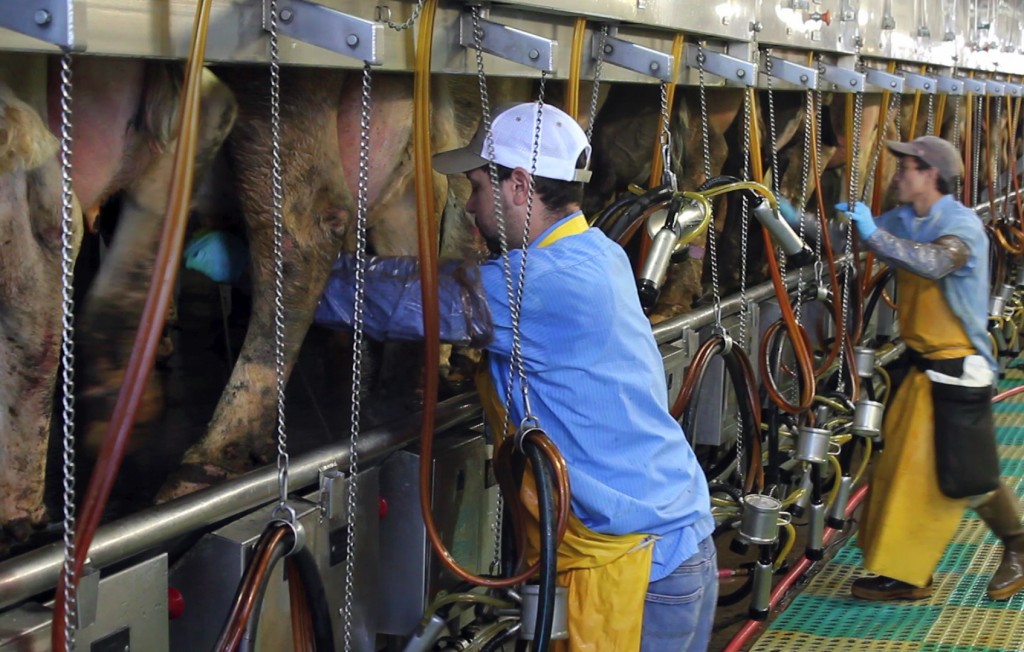A symposium brought together dairy industry experts and Kansas’ dairy producers to examine potential growth opportunities to benefit the state’s economy.
While walking through their local grocery stores, consumers might rarely think about all of the varieties and brands of products available to them, let alone where those products originated. In Kansas, consumers who favor national brands of yogurt or cheese in the dairy aisle could be taking home a product with a story that began closer to them than they could have imagined.
 According to the Kansas Department of Agriculture (KDA), Kansas currently has about 300 dairy farms across the state, most of them in eastern Kansas but the larger ones in western Kansas where the areas are less populated and more land is available. Statewide, Kansas has about 132,000 dairy cows and produces roughly 2.7 billion pounds of milk worth about $519 million of farm gate receipts annually. Much of the milk produced in Kansas ends up as bottled milk, while some of the milk and cream is further processed into products bearing labels of well-known U.S. dairy brands.
According to the Kansas Department of Agriculture (KDA), Kansas currently has about 300 dairy farms across the state, most of them in eastern Kansas but the larger ones in western Kansas where the areas are less populated and more land is available. Statewide, Kansas has about 132,000 dairy cows and produces roughly 2.7 billion pounds of milk worth about $519 million of farm gate receipts annually. Much of the milk produced in Kansas ends up as bottled milk, while some of the milk and cream is further processed into products bearing labels of well-known U.S. dairy brands.
Kansas State University hosted a dairy symposium on Oct. 23 in Manhattan, Kan., which posed the question, “Is Kansas positioned to grow its dairy industry?” and allowed dairy industry experts and Kansas’ dairy producers to gather and talk about the issues surrounding potential growth.
KDA has a program called the Kansas Dairy Initiative in place to help maintain current dairies in Kansas and look at dairy expansion opportunities. Potential areas of growth include number of cows and farms, processing capacity and the creation of more artisan dairy products, such as specialty cheeses, said Billy Brown, KDA agribusiness development coordinator and symposium speaker.
Kansas is a good location to increase dairy production not only because of the availability of land and wide-open spaces, Brown said. The state also has an adequate feed supply to support more dairy production. The dry climate with minimal instances of prolonged hot and cold spells is favorable to raising dairy cattle.
Kansas is a friendly state for animal agriculture, Brown said, and has relatively lenient environmental regulations to allow for animal agriculture expansion compared to several other states. Kansas Gov. Sam Brownback is also an advocate of increased animal agriculture production in Kansas.